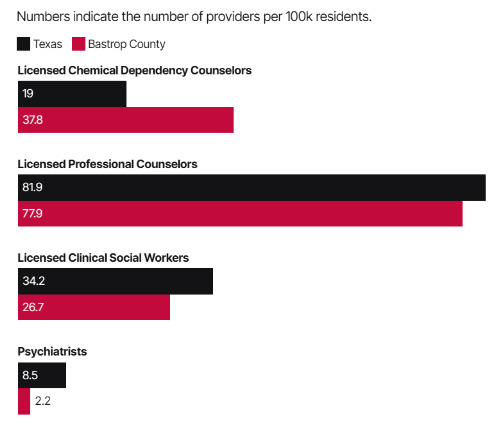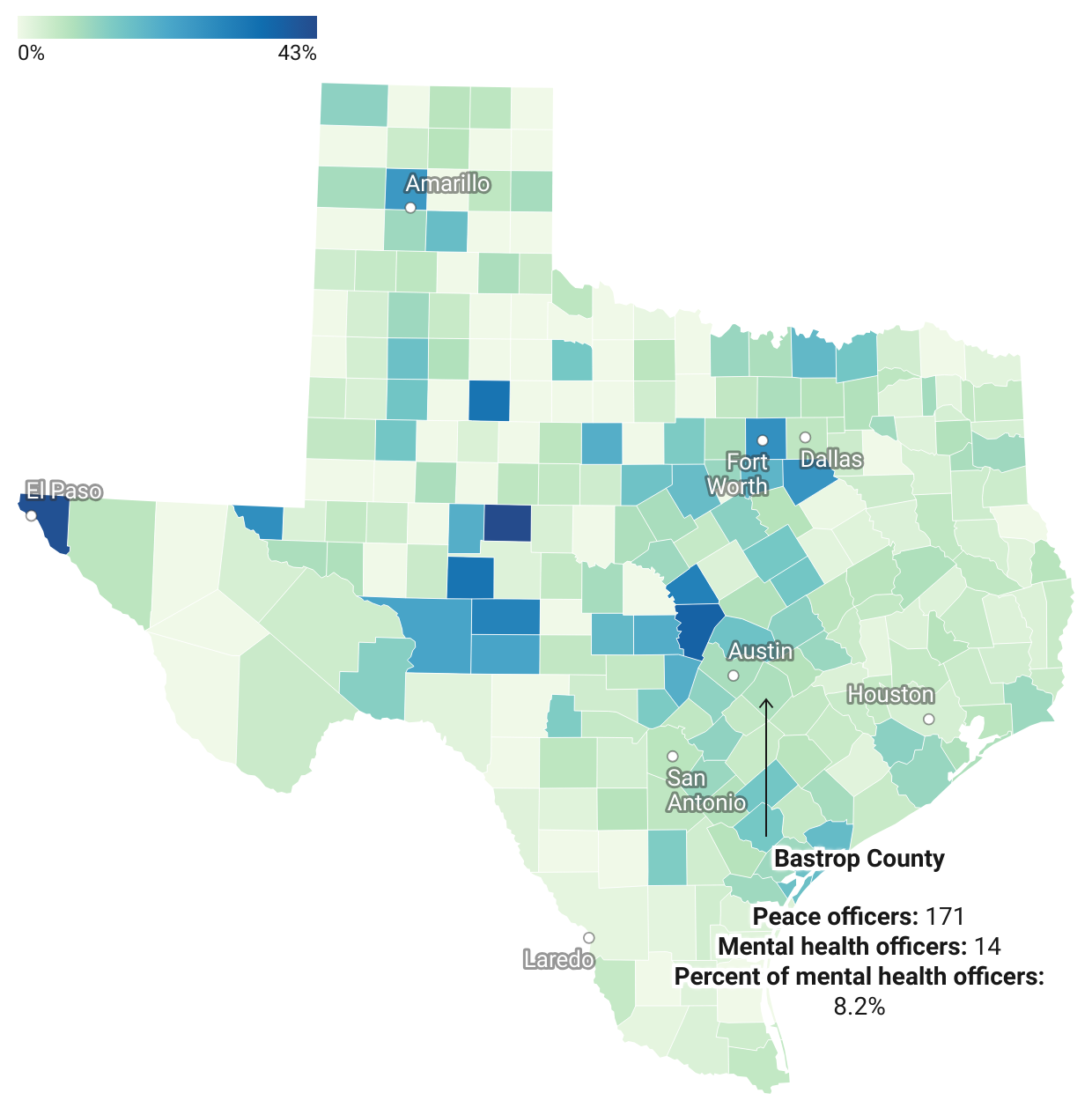Assuring proper treatment in a mental health desert
Throughout Elgin and Bastrop County, rural communities are relying on specially trained law officers and counselors to better serve residents facing mental health problems, favoring treatment over jail time.
Joseph Hines is one of the mental health deputies with the Bastrop County Sheriff’s Office Crisis Inter-vention Team, known as CIT. The team responds to crisis hotline calls and routinely checks in with clients to ensure their wellbeing.
Without this community service, more people would end up behind bars rather than getting the help they need, according to Hines.
“Patrol resources are stretched thin and don’t have the time to dedicate to working with persons that may be in crisis or on the verge of crisis,” he said. “Part of our job is transporting clients to mental health facilities, which makes it easier for them to get services in a reasonable time frame.”
Aiding their efforts, the Bluebonnet Trails Crises Team works alongside the mental health deputies of CIT.
“They respond to anything in the community that’s a mental health call and if (a client) misses an appointment, the mental health deputies try to find them,” LaDonna Boyd said, Bluebonnet regional director. “Sometimes it may not even be a mental health call, and it’s just someone in some sort of distress and they are called to assist.”
Mental health deputies respond to crisis calls with the Bluebonnet team if there is any immediate safety concern, according to Boyd. Often involved in the emergency detention process, if the deputies need to take someone to a psychiatric hospital, they are forced to go out of the county — as there are no psychiatric hospitals in Bastrop.

“The ones we have here are exceptional in working with people, trying to make sure that they get the best quality care, and getting them somewhere to keep them safe very efficiently,” Boyd said of CIT deputies. “We don’t want people waiting that need a mental health service in an emergency room or going to jail.”
Hines said he enjoys helping people, and thinks he has the patience and demeanor required to do the job effectively.
“Working in this position has certainly helped me understand human behaviors more thoroughly and how to best attempt de-escalation strategies in a given situation,” Hines added. “When I first started there was very little training for crisis calls, and I had to learn a lot on my own. Fortunately, everyone gets routine training on the subject now.” All Texas peace officers are required to take 40 hours of mental health training, but mental health deputies must pursue further education to get their certification.
The goal of the mental health deputies program is to divert people in need of mental health services away from hospitals and jails and into the most cost-effective community- based treatment available, according to Texas Health and Human Services.
Texas ranks last in access to mental health care in the U.S., according to Mental Health America, and out of the state’s 254 counties, Bastrop is one of 246 that have a shortage of mental health care providers.
In a mental health desert, people in crises can end up going to jail instead of receiving the proper treatment they need, Greg Hansch said, executive director of the National Alliance on Mental Health in Texas.
“(In) our mental health professional shortage areas, including basically all of the rural counties, people expressed the need for more counseling services, more transportation and more crisis services,” Hansch said.
Boyd hopes that the efforts of Bastrop’s deputies are ultimately making a positive impact on the community and will continue to do so in the future, he said.
“When we first started this, one of our deputies took someone to the Austin State Hospital,” Boyd added. “When they got back, that person came in and said, ‘thank you so much for helping me, just, I really appreciate you treating me very kindly, taking me where I needed to go.’ That deputy looked at me and said, ‘you know, you don’t get that very often from others,’ so it’s a very rewarding job as well.”
Texas Community Health News is a collaboration between the Texas State University Translational Health Research Center and the university’s School of Journalism and Mass Communication.

.png)





